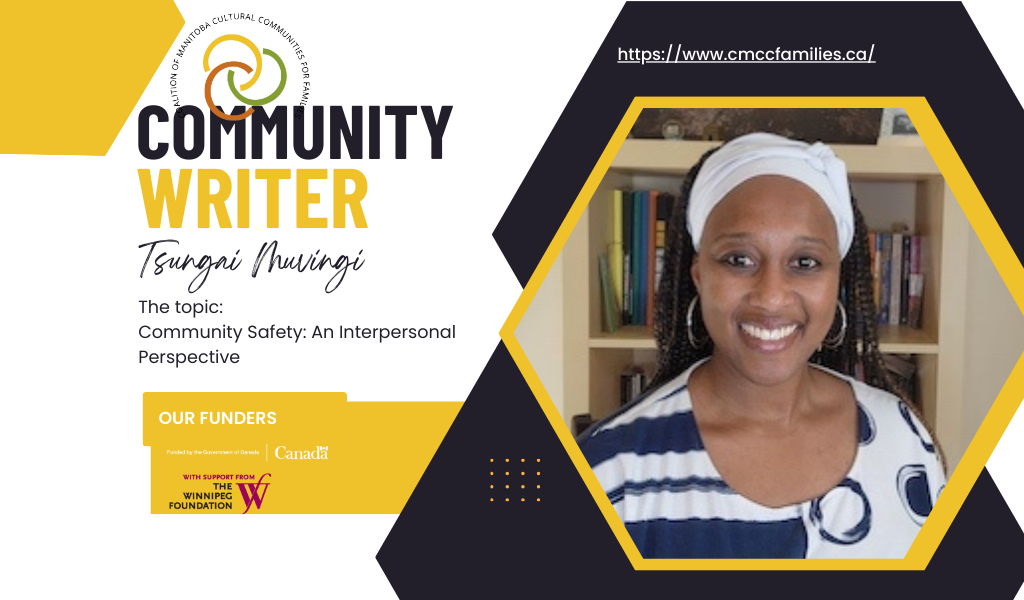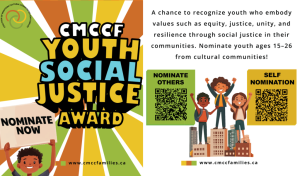
Just over a year ago a family of five lost their lives to domestic violence in Carmen. Tragically, their story is one among many others with safety remaining out of reach.
Safety: “the condition of being protected from or unlikely to cause danger, risk, or injury.” Oxford Dictionary.
Safety is a fundamental need for all individuals, influencing their ability to live, work, and thrive. A sense of security is shaped by a variety of factors, from supportive communities and safe neighborhoods to access to mental health resources, inclusive spaces and supportive healthy relationships. Understanding what makes people feel safe helps to create a society where everyone can reach their full potential without fear or barriers.
Over the last several years, the question of safety in the home and in interpersonal relationships has become increasingly common. According to Statistics Canada data from 2022 show that Manitoba has the second-highest rates of police-reported intimate partner and family violence among Canadian provinces. In a report by the Manitoba Advocate for Children and Youth, “…a child is exposed to a police-reported incident of intimate partner violence (IPV) every two hours.”
Additionally, based on research from the University of Manitoba RESOLVE, Manitoba rural communities have the highest rate of intimate partner violence in Canada with domestic violence related homicides 10 times higher than in urban communities.
The statistics continue. The stories are heartbreaking and call for engagement from all levels of community.
The challenge? Stigma still surrounds the topic of family violence. Many believe that intimate partner violence only happens to low income and uneducated women and persons. It is still treated as a “behind closed doors” conversation that should only be dealt with within the family or home.
On multiple occasions young people have said to me, “I am really smart. I can spot an abuser from a mile away. This will never happen to me.” These statements are dangerous as they remove the openness to learn and protect oneself because intimate partner violence is not static. It encompasses more than physical violence – it includes financial, emotional, psychological and spiritual abuse. It comes in many forms and can show up in subtle ways such as negative reactions to someone spending time with family and friends or someone else controlling their finances. With the use of technology, abuse has become more easily enacted from tracking of individuals to sending messages through mundane apps and services.
Safety in interpersonal relationships whether intimate, familial or other requires mutual respect and setting of healthy boundaries along with awareness and an openness to learn. We can no longer take things for granted.
How can communities foster healthy interpersonal and family relationships:
- Strong Community Support
One of the most significant factors contributing to relationship safety in Manitoba is the presence of strong, connected communities. By creating environments where all levels of community, especially youth, can talk about and address what healthy relationships look like community can provide strong supports to someone experiencing violence. Additionally, abuse can be prevented.
Many people feel safer when they know they have trusted neighbors and community members they can reach out to. Community youth programs that are culturally centered can provide mentorship and support, while giving young people a sense of belonging and reassurance that they are not alone.
- Safe and Inclusive Public Spaces
Public spaces play a crucial role in fostering a sense of security. When individuals feel physically and emotionally safe in their neighborhoods, they are more likely to engage in their communities which helps to prevent the isolation that comes with intimate partner violence. When many people reach out and check in on someone or notice when something changes with them, it goes a long way in providing much needed support.
Equipping communities and community leaders with ways to support those experiencing gender-based and intimate partner violence will also ensure that families get adequate and appropriate help during their time of need. Simple things such as, if people know where they can find resources and support or where to refer someone to can help break the cycle much sooner than the statistically reported seven times.
- Access to Community Resources
Mental well-being is an essential aspect of feeling safe. Many individuals in Manitoba experience trauma, stress, anxiety, or depression, which can exacerbate gender-based and intimate partner violence. Access to supportive resources can make a significant difference. Organizations like Crisis Response Centre and the Manitoba Adolescent Treatment Centre (MATC) offer critical support systems for those in need.
Engaging with local businesses in addressing violence in the workplace – intimate partner violence can take place at work, or it can follow someone from home into the workplace. When businesses are equipped with resources to support employees, the economy and communities at large see the positive impact as well.
- Well-Maintained Infrastructure and Safety Measures
Communities also feel safer when they have access to reliable infrastructure, including well-lit streets, accessible transportation, and emergency services. Investments in these areas ensure that people can move about their daily lives with confidence. Being able to meet in safe public spaces reduces the occurrence of intimate partner violence.
- Cultural and Indigenous Support Networks
For Indigenous and immigrant communities in Manitoba, safety is often linked to cultural connection and support. Organizations that provide culturally relevant programs, as well as fostering resilience and identity are crucial to providing the support that interpersonal relationships require in order to be safe and healthy.
“Cultural safety, a concept that emerged in the 1980’s in New Zealand, is viewed as an environment that is spiritually, socially, emotionally and physically safe for people; where cultural identity is recognized and valued through shared respect, meaning, knowledge and the experience of learning together.1”
Although, the concept was “identified” in the 1980s, for Indigenous and Cultural families, it has always been a way of life and it remains central to addressing healthy relationships. Where community members are able to find support in familiar settings, in culturally appropriate ways, healthy relationships can be defined in ways that make sense and provide lasting action.
- Support from Community Outreach Programs and the Justice System
How law enforcement shows up in situations of domestic violence impacts whether community members reach out for help. Having law enforcement engaged in community-based initiatives, through training and assistance with calls by people trained reassures vulnerable populations that their needs will be met with dignity.
In addition, when police initiatives and involvement are approached from a survivor and culturally sensitive approach, inroads are made towards effective responses to gender and intimate partner violence. This also applies to the entire justice system, healthcare, education, business, and other levels of community.
Safety is not just about reducing risks—it’s about fostering environments where people feel secure, valued, and empowered. Safety includes the application of positive peace tenets. Whether through supportive communities, safe public spaces, mental health resources, reliable infrastructure, positive relationships with law enforcement, or cultural connections, Manitobans thrive when they feel protected and heard. The absence of violence is only one step towards safety in community, whereas the most important step, “Positive Peace can be described as the attitudes, institutions and structures that create and sustain peaceful societies.2” Our conversations, our relationships, our actions, our laws, our infrastructure should therefore be speaking and exuding peace.
By continuing to invest in healthy relationships, by equipping all levels of community with knowledge and resources, Manitoba can ensure that every individual has the opportunity to more than live in a safe and supportive environment, but that they can fully thrive. After all, a safer future for people means a stronger future for everyone.

This article was written by community writer Tsungai Muvingi as part of our – Community Writers Project. All thoughts and opinions expressed are Tsungai’s own. You can learn more about Tsungai on our team page here.
To learn more about our Building Bridge project, you can click: Here

 Previous Post
Previous Post
